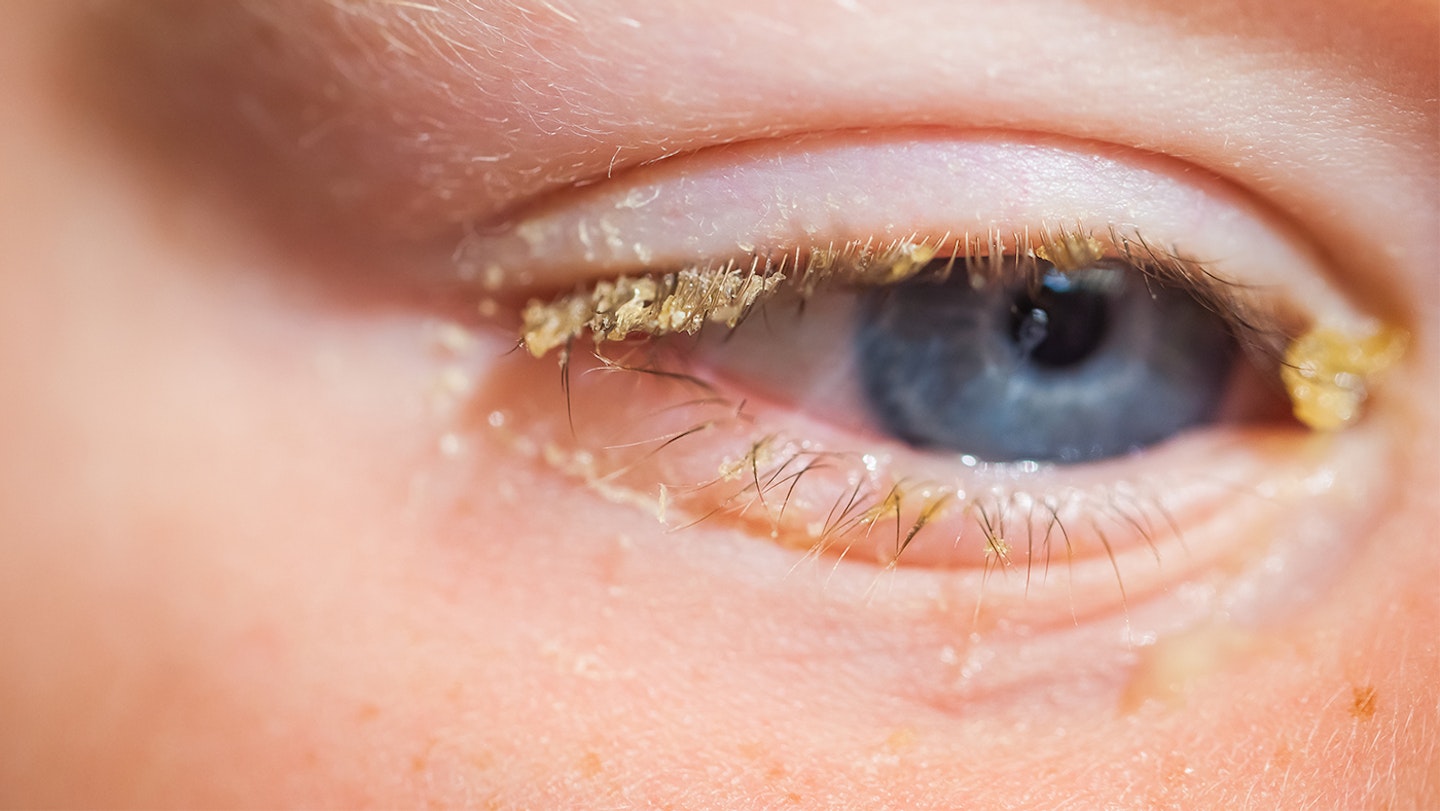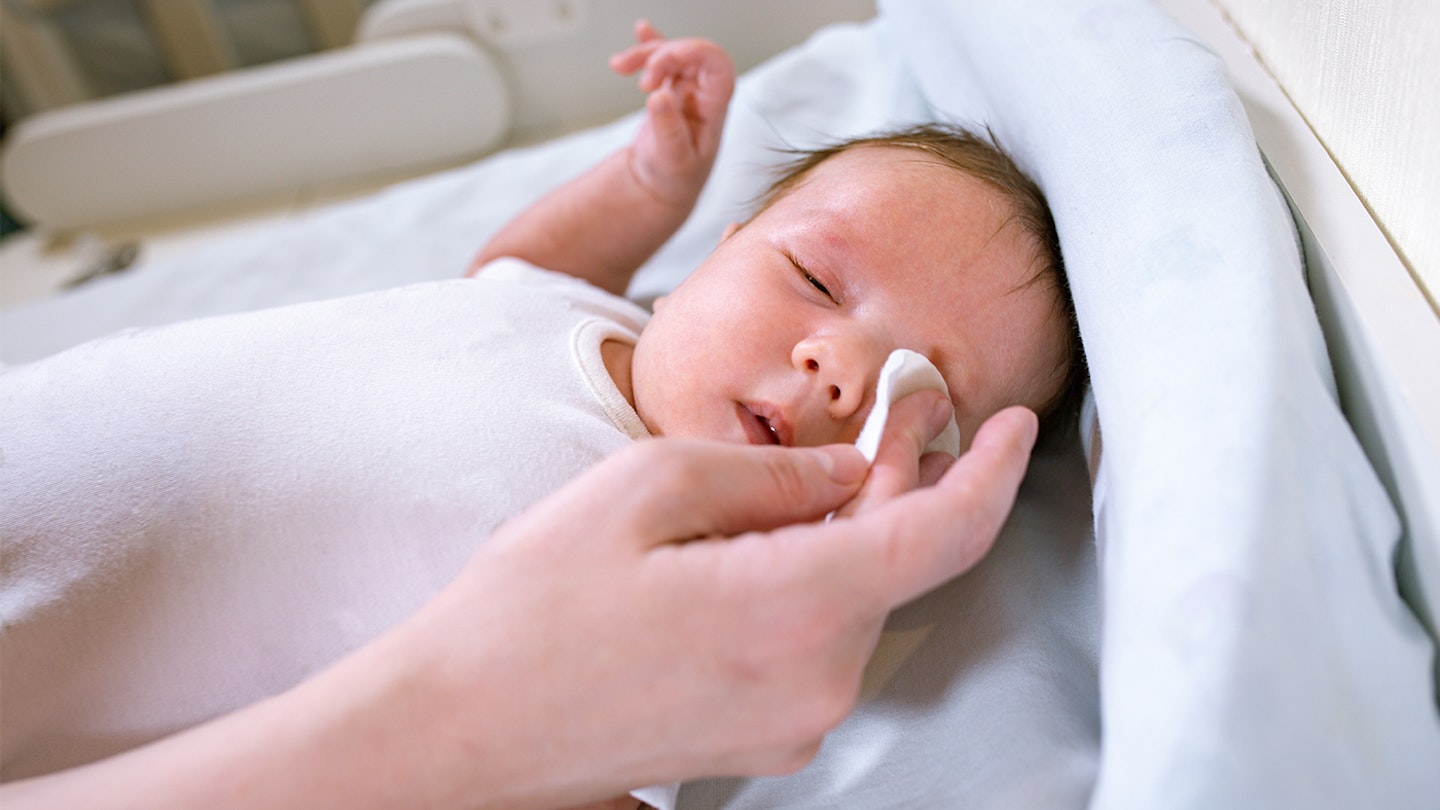You no doubt spend a lot of time gazing adoringly into your baby's eyes. But if they've started looking a bit red and sticky, you may be concerned your little one has conjunctivitis.
What is conjunctivitis?
Conjunctivitis, also known as 'red eye' or 'pink eye', is a condition where the conjunctiva – the clear membrane covering your baby’s eyeball – becomes red and inflamed. "It's quite a common childhood illness and even newborns can get conjunctivitis, although it's more common as they get older," says paediatrician Dr Colin Michie.
What causes conjunctivitis in babies?
Your baby can develop conjunctivitis from a viral or bacterial infection or even an allergic irritation. "Viral conjunctivitis – the most common version – is caused when your baby catches a cold or ear infection, so the eyes become red and watery," says Dr Michie.
Conjunctivitis in newborns can also be caused by a bacterial infection such as chlamydia, picked up during the birth.
Allergic conjunctivitis is triggered by dust, pet hair or pollen getting into your baby's eye, and causing an allergic reaction, or chemicals such as chlorine in swimming pools.
What are the symptoms of conjunctivitis in babies?
If your baby's eye looks red, puffy or swollen, and they're rubbing it as if it's itchy, it could be a sign of conjunctivitis. "Look out for a clear, watery discharge, which can occasionally be a green-yellow colour, that dries to form a sticky crust and glues their eyelids together, especially on waking," says health visitor Penny Lazell.

Does your baby have conjunctivitis or sticky eyes?
Many babies have what's known as 'sticky eyes', which are caused by blocked tear ducts. This isn’t conjunctivitis as it’s not itchy, but if the blockages aren’t cleared, the condition could develop. "Gently massaging the inner eye, near the side of your baby’s nose, will help clear the tear ducts," says Penny.
Conjunctivitis treatment
Although it can be uncomfortable for your bub, viral conjunctivitis will go away by itself in a couple of weeks and it's best not to treat it with medicines from your family medicine cabinet. "If your baby's eyes are crusted up or sticky, bathe them two or three times a day using cooled, boiled water and cotton wool to remove the discharge," says Penny. "Start at the inner corner of the eye and wipe outwards, using a separate cotton wool ball for each eye."
Bacterial conjunctivitis can take longer to disappear and you may need treatment with antibiotic eye drops, which your GP or health visitor can show you how to use.
Breast milk may also help treat conjunctivitis. "It contains natural anti-bacterial properties that can fight infection, so you can wash your baby’s eyes with it," adds Penny.
Check out the best baby conjunctivitis treatment for sore eyes according to an optometrist.
When to contact your GP
You should speak to your GP if your baby's conjunctivitis hasn't been picked up by the midwife or health visitor already. "Conjunctivitis caused by an infection in the birth canal can cause long-term eye damage so it's important to get it treated quickly," says Penny. If your baby has allergic conjunctivitis, your GP may prescribe sterile saline or antihistamine eye drops to soothe itching and redness.
However, it's also worth talking to a health visitor for any kind of conjunctivitis so they can diagnose it properly and advise you on suitable treatment.
Prevent conjunctivitis from spreading
Both viral and bacterial conjunctivitis are infectious and can easily be spread so be careful not to spread conjunctivitis among other members of your family. "Always wash your hands after cleaning your baby's eye or touching their face, and wash towels, blankets, pillows and comforters on a hot wash," says Dr Michie. Throw away tissues and other disposable hygiene products you use on your baby like wipes immediately.
You should also avoid contact between your child and other little ones and they should stay home from nursery or planned play dates. It's wise to limit play with older siblings too.
To help prevent allergic conjunctivitis or irritation from reoccurring you should:
• Dust and vacuum your home regularly
• Keep doors and windows closed when pollen is heavy
• Keep pets away from where your child plays or sleeps
• Avoid use of scented household cleaners or chemical cleaners
• Keep away from chlorinated swimming pools
